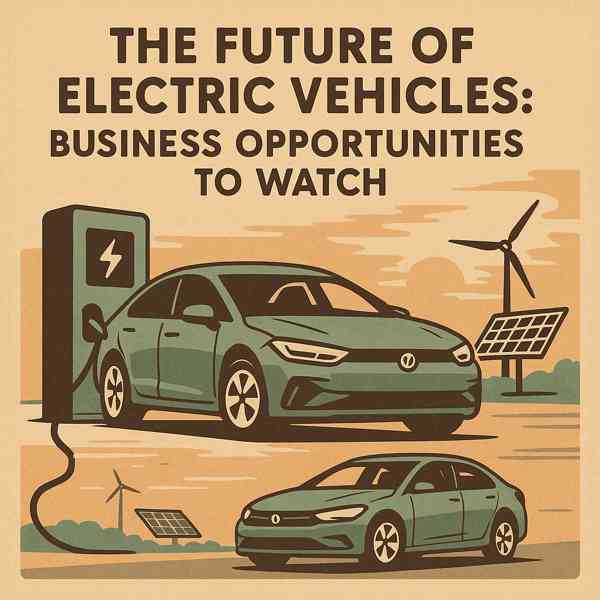Your Guide to Electric Vehicles

With zero emissions and cutting-edge technology, EVs are quickly becoming a top alternative for personal and commercial travel.
As battery technology improves and infrastructure expands, owning an electric vehicle has never been more practical.
What Are Electric Vehicles?
Electric vehicles are powered entirely by electric motors, rather than traditional internal combustion engines.
Key components of EVs include:
- Replaces the internal combustion engine
- Usually lithium-ion or solid-state
- Manages energy flow from battery to motor
- Connects to home or public chargers
Electric vehicles come in various types, such as plug-in hybrids (PHEVs)—each with different levels of electrification.
Why Choose an EV?
Whether you're looking to save money or reduce emissions, EVs offer a compelling option.
Why EVs are gaining popularity:
- Lower operating costs
- Helps fight climate change
- Less noise and vibration
- Government incentives and tax credits
For eco-conscious and cost-aware drivers, electric vehicles are an increasingly smart choice.
What to Know Before Buying an EV
Despite the growing popularity of EVs, they still face some barriers that buyers should consider.
Common concerns include:
- May require more frequent charging
- Not all areas have adequate public chargers
- More expensive upfront than comparable gas models
- Replacement can be costly without warranty
As technology advances and infrastructure improves, many of these challenges are becoming more acceptable.
Types of Electric Vehicles
EVs vary by power source, range, and usage.
EV formats explained:
- Battery Electric Vehicles (BEVs)
- Can switch between electric and fuel power
- Combines electric and gas power but cannot plug in
- Emit only water vapor
Each type has its pros and cons, so buyers should understand the differences.
EV Charging and Infrastructure
There are multiple charging levels and methods depending on your location.
Types of EV charging stations: website
- Slow but accessible anywhere
- Level 2 Charging
- Rapid chargers at commercial locations
- Still in development or premium models
As public charging networks expand, EV owners will enjoy even more support and reliability.
The Future of Electric Vehicles
As governments push for cleaner energy and manufacturers invest in innovation, the future of EVs looks revolutionary.
Trends shaping the future include:
- Higher energy density and faster charging
- Turning cars into energy assets
- The future of hands-free travel
- Expansion of affordable EV models
As innovation continues, EVs will become more dominant in the automotive world.
The Road Ahead for EVs
Electric vehicles represent a major shift in how we think about mobility.
From environmental benefits to cutting-edge tech, electric vehicles offer a exciting alternative to traditional cars.